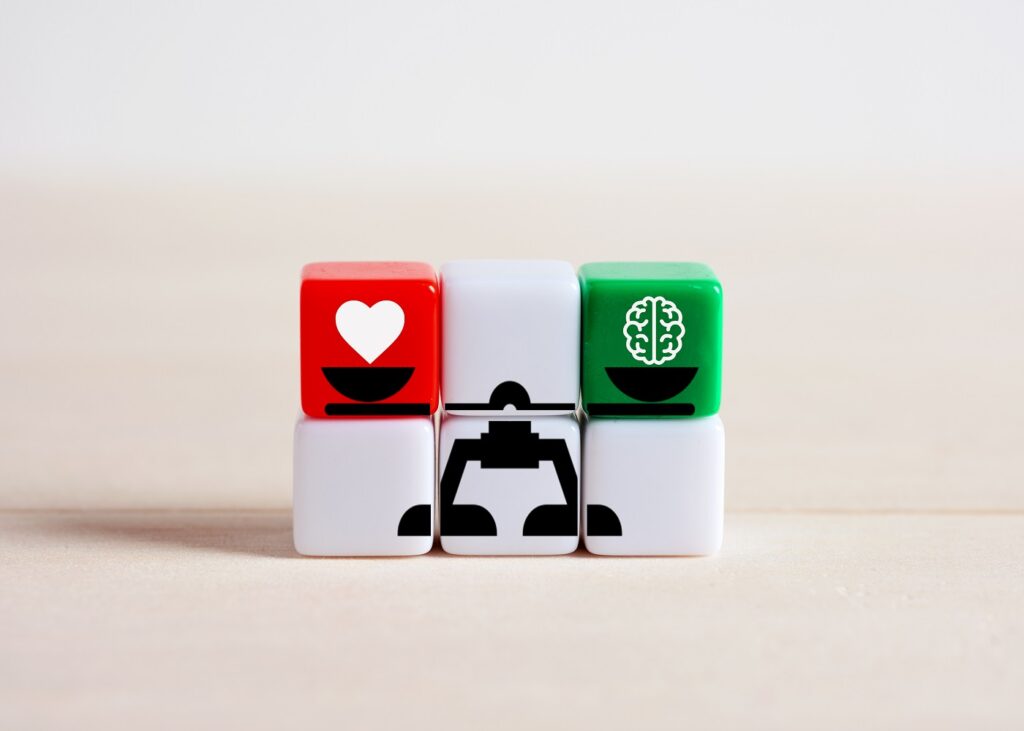In the 1990s, soft skills entered the business lexicon with a popular book: Emotional Intelligence by Daniel Goleman. Today, these “human” skills — communication, adaptability, self-awareness, empathy — are no longer “soft” add-ons to technical expertise. They’re critical for navigating the dynamic, people-driven work environments we operate in.
But how do we define soft skills, and how can we upskill them to meet the demands of the modern workplace? To dive deeper, we spoke with Chiara Succi, associate professor of organisational behaviour at ESCP, whose research and insights shed light on these often underexplored areas of professional development.
Soft skills have become indispensable given the complexity of today’s workplace and the need to engage with diverse people professionally.
The evolution of soft skills
“Soft skills have become indispensable given the complexity of today’s workplace and the need to engage with diverse people professionally,” Succi begins. “Unlike the past, where we might encounter new people infrequently, today’s roles are marked by regular exposure to diverse perspectives and contexts, which demands both emotional and cultural intelligence.”
Succi explains that as technology and global connections accelerate, the need for emotional intelligence has grown proportionally. And, in a world of increasing automation, these uniquely human skills — like empathy, adaptability and even humour — are the differentiators that allow professionals to stand out.
Measuring the impact of soft skills
One of the challenges around soft skills is measurement. “Typically, we want to quantify everything in business to validate decisions,” Succi notes. “But soft skills are more intangible, demanding a qualitative approach to truly gauge their impact.”
Succi points to Humor, Seriously: Why Humor Is a Secret Weapon in Business and Life, a book by Jennifer Aaker and Naomi Bagdonas as a great example of how qualitative tools can measure soft skills in action.
The authors’ findings highlight humour’s powerful role in leadership and creativity, confirming what many leaders intuitively know: a well-timed joke or an empathetic connection often outshines technical expertise in generating trust, collaboration and even innovative thinking.
This shift in perspective also extends to how businesses evaluate success. Traditional metrics like productivity or profitability are now supplemented by the “softer” measures of team cohesion, creativity and employee satisfaction — indicators that often correlate strongly with a high-performing organisation.
Upskilling soft skills
Are soft skills inherent or can they be learned? According to Succi, it’s a balanced blend: “Fifty-fifty,” she shares. “Some human skills are innate and shaped by early experiences, yet they’re also absolutely modifiable. The most important skill to nurture — and one that’s readily teachable — is self-awareness.”
Developing self-awareness is a gradual process of tuning in to one’s preferences, strengths and areas for growth, she explains. Simple actions, like reflecting on feedback, keeping a journal (observing ourselves in action), or setting specific goals for personal growth, can contribute significantly to building self-awareness.
From there, communication and emotional intelligence often follow; self-aware individuals are more attuned to others’ perspectives, making it easier to engage meaningfully in a collaborative environment.
[Soft skills] are the cornerstone of career growth in a world increasingly dominated by artificial intelligence. Robots may bring speed and precision, but we, as humans, bring imagination, intuition and affection.
Thriving in remote work
With the rise of remote work, new soft skills have taken centre stage. Succi notes that remote work has amplified the need for digital communication skills, as well as digital etiquette and self-motivation. So in a setting where face-to-face cues are limited, communication has become more nuanced, requiring a heightened level of clarity, respect for digital boundaries and self-management.
Additionally, adaptability — already a core soft skill — has become even more critical, Succi adds. Professionals must not only adapt to evolving roles and responsibilities but to an entirely new mode of working, where flexibility and digital fluency are non-negotiable.
Employers’ expectations
But one of the most significant changes Succi highlights is the shift in responsibility for soft skills development. “Employers no longer feel responsible for developing these skills,” she says. “They expect employees to take ownership of their personal and professional growth, even while working intense hours.”
This trend has placed the onus on individuals to pursue self-driven learning and upskilling, whether through workshops, online courses or networking. For today’s professionals, this means taking proactive steps to invest in their growth and embracing the reality that self-development is essential to career advancement.
Busting the myths
Yet, a major barrier to that are the myths around soft skills. Perhaps the biggest misconception, Succi argues, is the very label “soft”. “Calling them ‘soft’ undermines their value,” she explains. “These skills are the cornerstone of career growth in a world increasingly dominated by artificial intelligence. Robots may bring speed and precision, but we, as humans, bring imagination, intuition and affection.”
In this light, soft skills are less about “softness” and more about differentiating ourselves in ways that machines can’t replicate. As artificial intelligence handles more technical tasks, the distinctly human aspects of work — creativity, empathy, adaptability — may well determine who thrives.
So investing in soft skills is no longer optional — it’s essential. By focusing on self-awareness, refining communication and continuously adapting to change, individuals can not only secure their place in the workforce, but stand out as leaders in a world eager for a human touch. As Succi puts it, “If robots bring the muscle, let humans bring the heart.”
